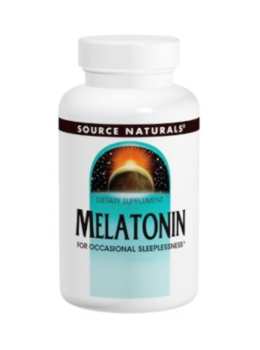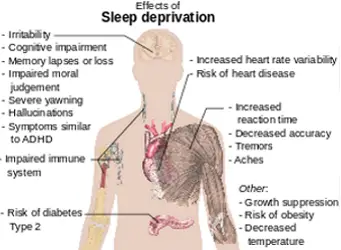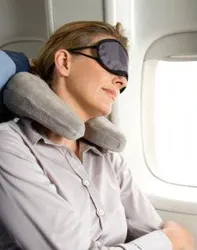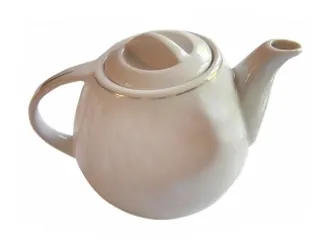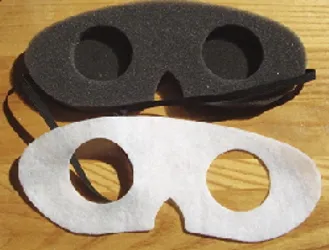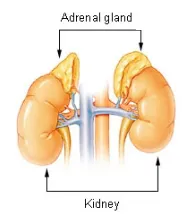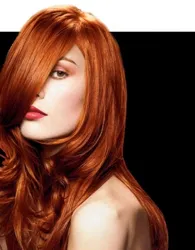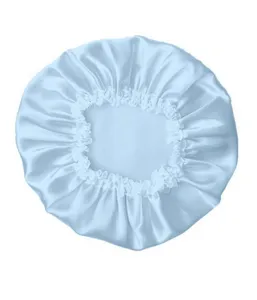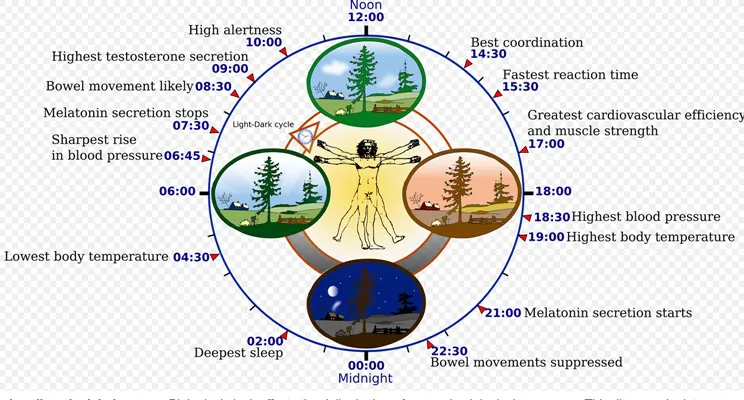
Sleep Better For Healthier Hair
Introduction - Sleep Better For Healthier HairStudies have shown a link to lack of sleep and lackluster strands. In fact, extended periods of stress not only disrupt healthy sleep patterns, but may cause hair loss.
What to do? Learn to sleep better for healthier hair.
Listed below are some well-known tricks for falling asleep faster and sleeping through the night:
1. Pop a melatonin - Melatonin is also known chemically as N-acetyl-5-methoxytryptamine.
It's a hormone found in animals, plants, and microbes. Many believe {{asin=B000GFPCN4, text=melatonin}} helps regulate circadian rhythms of several biological functions and ultimately assists some people with falling asleep and staying asleep.
The full effects of long-term exogenous supplementation in humans have not yet been ascertained.
Melatonin is categorized by the US Food and Drug Administration (FDA) as a dietary supplement, not a drug.
2. Relax with lavender - One of my own favorite sleep remedies is to dab some lavender essential oil (EO) on my wrists before bedtime.
I take a few deep whiffs from the bottle, which immediately helps me feel relaxed. Not everyone loves the aroma of lavender so this option may or may not work for you.
If you'd rather not deal with the essential oil, you can find many different lavender delivery systems ranging from lavender infused sleep masks and pillows to sprays.
3. Wiggle your feet - Studies have shown that the simple act of wiggling the toes for a minute or two will help promote fast deep sleep.
Why? Wiggling the feet and toes will trigger instant relaxation throughout your entire body. Reflexologists believe the body and the mind are connected. Thus sleep naturally becomes much easier when tension is removed by the gentle wigging of your feet.
4. Go for total darkness - Studies have shown that sleep is much easier to achieve when no outside lights are streaming into your bedroom. In fact, experts suggest you keep all light generating devices such as smart phones and pads out of the bedroom so you are not inadvertently disturbed by intermittent lights.
Even covering the dials of an alarm clock which have even the faintest amount of light can help.
5. Tuck a pillow between your hips - Although many sleep experts suggest you start your sleep cycle in the traditional fetal position, others believe you will sleep deep and more restfully if you tuck a pillow between your hips to minimize pressure to your body.
The fetal position is suggested because it is known to release hidden shoulder and neck tensions which most people carry throughout the day. Release body tension will help create relaxation and sleep.
6. Rub your tummy - Starting at the navel, make a series of small concentric circles on your tummy. Reverse direction and start over. Start with the small circle and gradually make them bigger and bigger.
Studies have shown that gently rubbing your stomach at night before you go to sleep will promote relaxation, boost necessary blood flow and optimize digestion. Massage therapy experts sometimes recommend the nightly tummy rub exercise for clients who have trouble relaxing and falling asleep.
7. Inositol may help - A member of the famous B-complex family, inositol has been proven to boost reception of the serotonin neurotransmitters. When serotonin is high in the body, there is a tendency to feel happier, more relaxed, and less stressed.
Experts suggest a starting dose of 200-500 mg. of {{asin=B0013OUKPC,text=inositol}} taken shortly before bedtime for the best results. Experiment and dial up or down the dosage as appropriate.
8. Sleep in the nude - A British study confirmed that 85% of subjects who normally wore PJs or related night clothes fell asleep must faster without them. How does this work? Any drop in temperature from the body or in the surroundings signals the brain that it's time to sleep. Wearing little or no sleep clothes will generally signal the body to fall asleep faster.
9. Proper breathing - There are many suggestions for how to breathe properly to encourage sleep.
One very popular method is alternate nostril breathing which is based on yoga practices around the world. Alternate nostril breathing is known to encourage a calm mind and promote sleep.
To perform alternate nostril breathing simply cover your left nostril with a finger while inhaling through the right nostril. Cover the right nostril and exhale through the left one.
Repeat 10 times or more. This breathing technique is known to boost the body's levels of dopamine and endorphins.
Summary - Sleep Better For Healthier Hair
Other tricks designed to help you sleep better for healthier hair includes eliminating caffeine or related stimulants after noon, listening to white noise or taking a relaxing warm bath or shower before tucking into bed.
Setting and keeping a regular sleep schedule will help the body know when to fall asleep.
For some people, a glass of wine can encourage sleep. For others it may actually disrupt sleep patterns. Ultimately the decision to use alcohol to assist with falling asleep should be a personal consideration.
Drinking too many liquids close to bed time is also a known sleep disruptor.
There are many other helpful tips experts can provide which may work better for some. The suggestions listed above are some of my own time-tested favorites which work for the majority of my friends and family.
When you are able to sleep better, you will ultimately reap many physical and mental benefits along with healthier hair.Social Media Network Information
Please follow us on Twitter at: https://Twitter.com/HairBoutique. I look forward to meeting new people from all walks of Twitter and learning from their Tweets.


